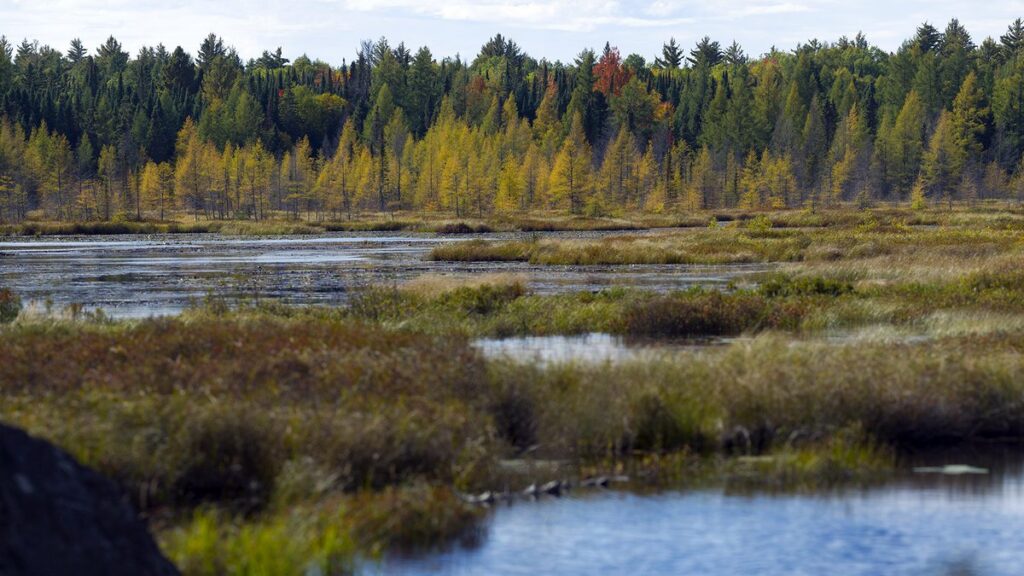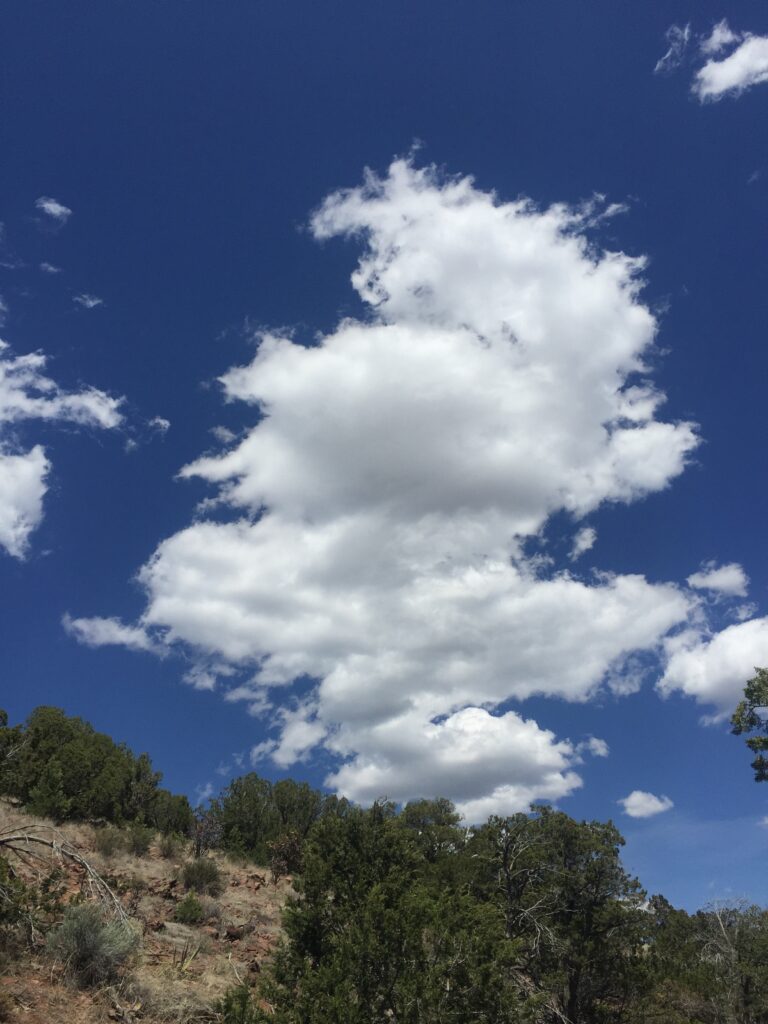A few months ago I facilitated a six-day Tribal Wetlands Workshop on zoom. Participants were tribal leaders, staff and members who were involved in protecting and maintaining tribal wetlands. The Environmental Protection Agency (EPA) organized the workshop and a colleague and I were under contract to plan and facilitate the event. We worked with a planning team of both EPA and Native American representatives to make sure that the workshop met a variety of goals: teach methods and strategies for managing wetlands, provide opportunities for tribes to collaborate and learn from each other, and highlight the cultural, spiritual, social and economic values of wetlands for tribal communities. The workshop was packed with great presentations on a wide range of topics and there was time for questions and discussion among the 40-50 participants as well. All in all it was a success, but as is often the case, what I remember most vividly is a moment of facilitation crisis. This is how it unfolded.

Almost all gatherings with tribal participants that I facilitate – in person or on zoom — begin with a prayer from a tribal elder. I learned long ago that this brings calm and a sense of community to whatever discussion follows. It also seems to balance the power in the room. The non-Indian professionals who might be perceived as the more powerful ones at the table are humbled by a prayer in a language they don’t understand, invoking powers that clearly overshadow those on earth. I enjoy those moments and appreciate the tribal elder’s message that points us in the direction of a productive, respectful day.

For the Wetlands Workshop I assumed that we would begin each morning with a prayer. I had asked the planning team to invite tribal candidates hoping to have these prayer-givers lined up in advance, by the first morning of the workshop there was no such person identified. Instructions were to ask a tribal elder to “step forward” on the screen and offer a prayer. This is not unusual, I have done it many times and a generous tribal member always answers the call.

So on the morning of the first day, I welcomed everyone and spoke of our hopes for a successful workshop. And then I said that I always appreciated starting a gathering like this with some remarks, a prayer perhaps, from a tribal elder. I said I would welcome anyone stepping forward who could offer us this gift. I let a beat or two pass, understanding that I was taking the audience by surprise and that probably two or three candidates were thinking it over, waiting to see if someone else volunteered. I asked again in a way that I hoped was warm and welcoming. I didn’t want to sound desperate or needy. Silence. I scanned the three screens full of faces for someone who appeared to be getting ready to speak up. No sign. More silence. I offered the invitation one last time to no avail. My only option was to move on and do my White facilitator thing, reviewing the agenda, offering groundrules, etc. But I just couldn’t do it. We needed that time for coming together, honoring the time and place, naming the values that we all share, blessing this workshop and its good intentions.
I stepped into some very large shoes and said something like this: “I can remember many beautiful prayers and words of welcome offered by tribal members over the years. I have always appreciated that gift and I know that it helps us all move into this space together with a feeling of respect and with the knowledge that we are all one community. I would like to invite us all to take a few moments to remember those prayers we have heard over the years, to bring them into this virtual room we share, and hopefully together we can create that powerful foundation that will carry us through today.” I held a minute of silence during which I wondered what on earth I had just done. I was self-conscious and worried about cultural appropriation. I looked at the screens of faces again. Many heads were bowed, all were quiet and looked serious. Eventually I spoke, thanked everyone for helping us take the first step together in the spirit taught us by tribal elders. And I moved on to review the agenda.
As the day unfolded I expected some critical feedback and when I didn’t get any I asked my co-facilitator what she thought and she gave me a thumbs up. I was not convinced, and I was sure that the next morning one of the tribal elders would have pity on me and step up and do it right.
No such luck. Again I asked for a volunteer prayer giver and again was met with silence. Again I improvised. I talked about the breath we had in common, the water resources so precious to us all, our interdependency with the natural world. It took no more than a minute but felt like an eternity. I asked for a moment of silence and reflection and we moved on.
The pattern was set. The next morning and for the three remaining mornings, I invited someone to offer a prayer, and ended up myself offering what I hoped were grounding and unifying remarks. Each time I felt more relaxed, more myself. Finally on Day 6, I made my perfunctory invitation for a tribal prayer, but I was secretly hoping for silence. As I waited a respectable number of seconds, I was muttering to myself “Don’t you dare! I’ve got a really good one ready to roll out for today.”
I’m sure some people looked forward to seeing me squirm – a reason not to log on late. I’m sure there was curiosity, too. I never received any critical feedback, and in fact I heard appreciation. Surprisingly for me, offering an opening prayer is not so much a function of who is offering it as the spirit in which it is offered. I genuinely wanted to fill that void that I had seen filled so beautifully by others. I wanted to bring that spirit, the sense of togetherness into the room. I didn’t want to go on without it. As facilitator I give those in my charge all that I can, all that I have within me, and sometimes it’s a surprise. There may also be a lesson here about cultural appropriation. In this case, I was inspired by a tribal practice, I had experienced the power. I wanted to give my participants that feeling, but to be real for them, it had to be genuinely mine, coming from my own beliefs.
And I think being an elder myself had something to do with it!


This is lovely. In grammar school, we always said the pledge of allegiance and I never cared about the words, didn’t feel as though In fact, it just sounded musical to me. I liked that all of us spoke as one. I loved hearing the rhythm of my classmates voices and I liked the little interlude between the havoc of everybody getting into the classroom and the calm of sitting more quietly while the teacher began to do her thing.
I remember that moment, too. For me it was a bit traumatic because when I was in fourth or fifth grade “under God” was added to the pledge of allegiance. I didn’t know whether to go along with my classmates and say it, or adhere to my parents’ strict belief in separation of church and state. I compromised — true to form! I mouthed “under God” but no sound came out.
Lucy, For sharing your story of the group and for your recollection of the grade school moment of confusion, thank you. Throughout elementary school, beginning in kindergarten, I struggled each December as the class sang Christmas songs and I tried to figure out how to join in without mentioning baby Jesus. I wanted to be included, I loved singing, but as a Jew, I was conflicted. No one ever said this to me, but I worried that I would be doing something bad if I were singing to Jesus.
Oh, Michael, how many of us were trying to pass in one way or another at that age? More than we dreamed probably. It felt so lonely, and yet we had lots of company. Thanks so much for writing.
For those of us who work cross-border or cross-tribal lands, we can appreciate and validate your trepidation.
A unifying moment, for sure. Thanks, Lucy
Thank you, Jan, always good to hear from you.
Magnificent. Loved the line:
“Surprisingly for me, offering an opening prayer is not so much a function of who is offering it as the spirit in which it is offered.”
Your blog always offers an insight.
Thank you so much, Jamie. It was a tough one to write and I’m gratified it resonated with you.
Admire your bravery and ability to step into the role of elder wisdom. I do not believe the word God has anything to do with separation of church and state. There is no mention of any religion. Our founding fathers built this Republic on the belief of a supreme being. Many instances of this in our Declaration of Independence etc. Topic for a different conversation. It did not detract from your overall message. Well done.
Thanks, Larry, and I’m not going to argue with you about the founding fathers — yes, they certainly founded with a strong belief in God. I think my anecdote is more about the 10 year old mind trying to do the right thing.
I’m with Jamie, Lucy: bravo!! I only wish all meetings could start this way, perhaps everyone would remember that the real reason they are there is to find common ground. Maybe you can facilitate something in Ukraine?
Thanks, Joanna, but no thanks! It’s going to take something I can’t even imagine to work that one out. Great to see you and Bill the other night.
Cultural Appreciation or Cultural Appropriation? There’s grist for a deep conversation! As an artist and recent arrival in NM, this is something I struggle with. There is so much beauty, grace, dignity in the indigenous traditions. I don’t seek to copy, or disrespect; but I do seek to understand and integrate respectfully into my work. May our hearts be as one.
Beautiful aspiration, Laurie. Thank you.
Wisdom of the elders,
“Don’t you dare! I’ve got a really good one ready to roll out for today.”
Those elders can be pretty tricky, huh?
Way to improvise and to be true to yourself too. I think you’ve earned the ability and wisdom to create that space for people!
Thanks, Seth. I like that — improvise and be true to yourself. That’s really the job description of a mediator/facilitator, isn’t it?
I was there, and it was really beautifully done! You opened the space for reflection in a warm and inviting way. I personally appreciated and admired your gift for expression. You gave no hint of it being an uncertain moment for you! I am not surprised you have heard only words of appreciation so far.
Thank you so much, Dana, for the eye witness account — a very sweet one. Much appreciated.
If more meetings started with a sincere invitation to remember common ground, i think there would be less temptation to race to polarization. I find it interesting that we can create and inhabit a shared “circle” of presence even in Zoom with such a beginning.
Thank you for your thoughts.
Thanks, Tyson. I’ve become very fond of facilitating on zoom and have witnessed some amazing human connections. We’re more and more in a digital world, so it makes sense to me that we would figure out how to “be human” digitally.
Lucy, I cannot offer any response more beautiful and encouraging than those already offered. And agree you navigated the challenges very well. I always appreciate yoga instructors who make time for us to prepare an intention for why we are practicing at that moment, before launching into the class. Would our discourse be more meaningful if our social norms insisted upon searching the soul to set an intention for our communications, before every gathering?
My answer would be “yes indeed!” How to present and implement that intention-setting is tricky. My experience is that when it is offered by a Native American it is more widely accepted… interesting, isn’t it? As a country we have abused that population since our arrival and yet many now turn to them to fill a spiritual vacuum.
I really loved this account by you Lucy. You encourage and enliven by example. And the energy you bring where ever you show up. Sending big hug your way.
So good to hear from you, Nedra. Your words mean a lot to me. Hope all is well in your part of world.
Thanks, Lucy. One lesson I draw from this is that the meaning that cultural rituals bring to a gathering, an event, or an occasion is more universal than we often perceive. It’s not “their” prayer, it’s our prayer. We’re not voyeurs but contributors and participants. And when performed in the spirit of sharing and inclusion, it may not matter so much who the prayer giver might be.
Thank you, Steve. I agree… but I also know that cultural appropriation is very real, maybe especially here in the southwest where Native cultures are alive and well, and enviable for many. The need for a spiritual message to bring people together is universal and, lacking one from one’s own American mainstream culture, it’s tempting to adopt a ready-made one from another group. I think that was the challenge for me — to come up with an “opening prayer” that truly came from me. Hope you are well, safe and continuing your excellent work!